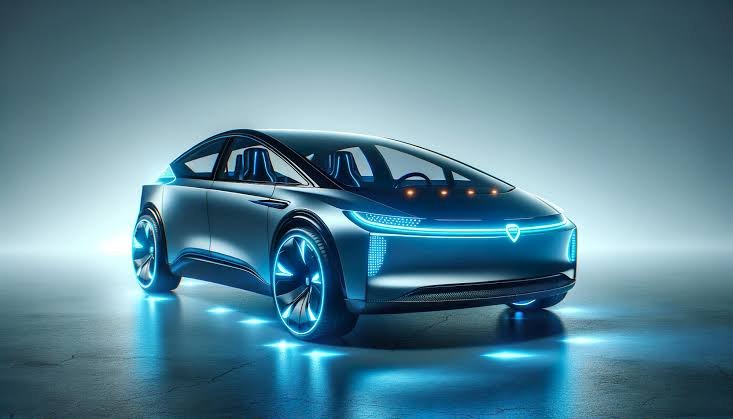Electric vehicles (EVs) are becoming increasingly popular around the world, and it’s easy to see why. From reducing pollution to saving on fuel costs, EVs offer a range of benefits that make them an appealing choice for many drivers. If you’re considering making the switch to an electric car, or you’re just curious about what all the buzz is about, you’ve come to the right place. This blog post will give you a clear overview of electric vehicles, how they work, their advantages, and what you should know before making the switch.
What is an Electric Vehicle (EV)?
An electric vehicle (EV) is a car that runs on electricity rather than traditional gasoline or diesel. EVs use one or more electric motors powered by batteries. These batteries can be recharged by plugging the car into an electric power source, like a wall outlet or a charging station. Unlike gas-powered cars, EVs don’t produce harmful emissions, making them an eco-friendly alternative to traditional vehicles.
How Do Electric Vehicles Work?
Electric vehicles work by using electricity stored in a battery to power an electric motor. Here’s a quick breakdown of how it works:
- Battery: The heart of an EV is its battery, which stores electrical energy.
- Charging: The battery can be recharged through a charging station or a regular electrical outlet. Fast-charging stations can charge the car much quicker than home outlets.
- Electric Motor: The motor converts the electrical energy from the battery into mechanical energy to power the wheels, making the car move.
- Regenerative Braking: Some EVs use regenerative braking, which helps recharge the battery when the car slows down.
Benefits of Driving an Electric Vehicle
- Environmentally Friendly
EVs produce zero tailpipe emissions, which means they contribute less to air pollution. By choosing an electric vehicle, you’re helping reduce greenhouse gases, making the planet a cleaner and healthier place to live. - Lower Operating Costs
Charging an EV is typically much cheaper than filling up a gas tank. Plus, electric vehicles require less maintenance because they have fewer moving parts compared to traditional vehicles. This can lead to significant savings over time. - Quiet and Smooth Ride
One of the best parts of driving an electric vehicle is the quiet, smooth ride. Since they don’t have an internal combustion engine, EVs produce less noise and vibrations, making for a more peaceful driving experience. - Government Incentives
Many governments offer tax credits, rebates, and incentives to people who buy electric vehicles. These incentives can help reduce the initial cost of purchasing an EV. - Energy Independence
Electric vehicles reduce your reliance on fossil fuels, which helps promote energy independence. Charging an EV can be done at home, and with the rise of renewable energy sources like solar power, you could even charge your car with clean, sustainable energy.
Challenges of Electric Vehicles
While electric vehicles offer many advantages, there are a few challenges to consider:
- Range Anxiety
One of the most common concerns about EVs is their driving range. While EV technology is improving, many drivers worry that they won’t have enough range to get to their destination or to find a charging station on the way. - Charging Infrastructure
Although there are more charging stations than ever before, they are still not as widespread as gas stations. This can be inconvenient, especially in more remote areas. - Higher Upfront Cost
Electric vehicles can have a higher initial purchase price than traditional vehicles, though this cost has been decreasing over time. Additionally, government incentives can help offset the price.
Should You Buy an Electric Vehicle?
If you’re trying to decide whether an electric vehicle is right for you, consider the following factors:
- How far do you typically drive?
If you don’t often drive long distances, an EV could be a great choice. Many newer EV models offer a range of over 200 miles on a single charge, which is enough for most daily commutes. - Do you have access to a charging station?
If you have a home charging station or live in an area with many public charging stations, an EV can be very convenient. You can charge your vehicle at home overnight, just like your phone! - Are you ready for a cleaner, greener future?
If you want to reduce your carbon footprint and support a more sustainable future, driving an electric vehicle is a powerful way to make a difference.
Conclusion
Electric vehicles are not just a trend – they represent the future of driving. With numerous benefits, including lower emissions, reduced operating costs, and a smoother driving experience, EVs are a smart choice for many drivers. Although there are some challenges, such as range anxiety and charging infrastructure, these are improving with time. If you’re considering making the switch to an electric vehicle, it could be one of the best decisions for both your wallet and the planet.
FAQs About Electric Vehicles
1. Are electric vehicles really better for the environment?
Yes! Electric vehicles produce zero emissions, helping to reduce air pollution and greenhouse gases compared to traditional gasoline-powered cars.
2. How long does it take to charge an electric vehicle?
Charging time varies depending on the type of charger and the size of the battery. Fast chargers can fully charge an EV in 30 minutes to an hour, while home chargers may take several hours.
3. Do electric cars need oil changes?
No, electric vehicles don’t need oil changes because they don’t use internal combustion engines.
4. What is the average range of an electric vehicle?
Most EVs can travel between 150 and 300 miles on a full charge, depending on the model and driving conditions.
5. How much do electric vehicles cost?
The price of an electric vehicle can vary widely depending on the model and features. On average, EVs tend to be more expensive upfront, but the long-term savings on fuel and maintenance can make up for the difference.

